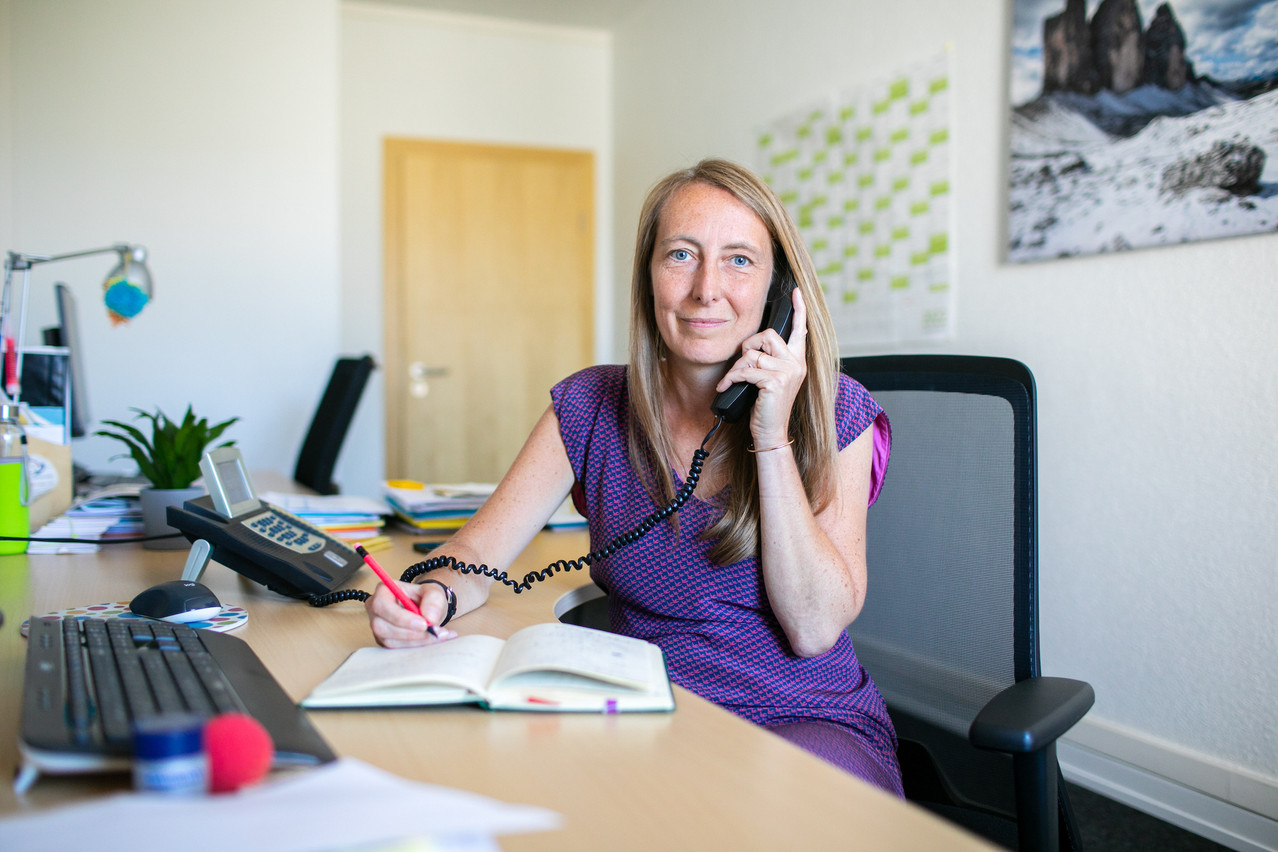Founded in 1992, Kanner-Jugendtelefon (KJT) is a counselling service aimed at children and youth but also parents.
Delano: In a nutshell, what is the KJT?
Aline Hartz: The KJT foundation was established within the framework of the United Nations Convention on the Rights of the Child. KJT gives every child and every young person the opportunity to be heard. We have time to listen to their questions, fears and problems in their daily lives, but also during times of crises. No one should be abandoned.
Each child and adolescent can speak directly to specially trained counsellors. Everyone--including parents, people in contact with children, as well as professionals in the fields of education and psychology--has access to this simple and direct counselling service.
What services do you have for English speakers specifically?
We have special offers for English speaking children, young people, parents and other caregivers. We have specially trained English-speaking volunteer counsellors from Great Britain, Ireland, Canada, South Africa, Denmark, and soon also India.
English-speaking children or young people are welcome to contact us via our online help portal: .
English speaking parents, grandparents or other caregivers can contact us via our website or additionally via our parents’ hotline, now available in English on Mondays from 6-8:00pm at 8002–4444 (free of charge). If calling from abroad, dial 00352-8002-4444.
What are some examples of common questions you get on the parents’ line?
Questions like:
Oliver has changed. Is this normal for this stage of development?
I feel like I can’t get close to Lily any more.
Emma has changed a lot since she started puberty.
Things have become difficult with my wife since we split up. We argue all the time.
We always argue about homework--what can I do?
Finn is always online and if I take away his mobile phone then crisis is guaranteed.
I’m a single mother, I’m totally overwhelmed and don’t know what to do.
We are struggling with Tim’s aggressive behaviour.
Unfortunately, parents and grandparents also report depressive moods, bullying, cyberbullying, situations of violence or abuse. Sometimes parents are talking about these issues for the first time. We are there for them in their time of need, offering advice, guidance and support. Every single question, every single concern, every single problem is welcome. No issue is too big or too small.
Do you have any advice for how to talk to young people about their mental health?
Mental health is the main reason for callers on the youth helpline, as well as on the online help portal. Sadly, for both the English-language online portal and the “Chatberodung” chat counselling service, suicidal thoughts and self-harming behaviour are the most frequent subjects.
It’s important to build trust and to show yourself to be available, authentic and interested in listening to them. The most important thing for your child is to know you’re there.
Giving your child the opportunity to open up is the best thing you can do as a parent to support their wellbeing. By sharing their thoughts and feelings, they feel seen and understood, and more able to cope. It also helps them practice thinking about their feelings and get to know themselves and their needs.
Parents often ask us when is a good time to talk, and how to start the conversation. It’s helpful to start naturally, for example while you’re doing something you enjoy. Talking during an activity can ease the pressure, compared to having to sit still, making intense eye contact, feeling “watched”--and it makes pauses or silences less uncomfortable.
Here are some ideas of activities: walking/hiking, baking, going for a drive, playing a ball game, having a snack or cup of tea, dancing or singing together, sharing your music, meditating or doing yoga together via a YouTube video, etc.
It’s also helpful to know that it doesn’t matter what topic the conversation starts with. The most important thing is the opportunity you give to talk about feelings and provide comfort. Just start in a natural way that you’re used to and simply ask: How are you feeling? I observed that you’re more introverted or calmer than usual--do you want to talk about what’s going on? You know that you always can talk to me. I’m here for you.
If your child opens up, it’s important to validate their feelings, to take it seriously. Thank your child for sharing and let them know that you love them and that you’re always there whenever they need. You can also ask if there’s anything you could do that they would find helpful. Spend time together to speak about it, and to reassure them that things can change. Don’t forget to let your child know about KJT.
And don’t hesitate to contact the parent’s phone line, Elterentelefon (every Monday from 6-8:00pm), or to write us online at .
Other details about the service?
During counselling, we try to find solutions for each person who contacts us and to help them implement those solutions. If required, we can also refer the person to other institutions to seek further guidance. The counselling is fully anonymous and confidential. Besides confidentiality, our other consulting principles are tolerance; respect (every person who contacts us is accepted without prejudice and/or bias); openness (every issue is welcome); and self-determination (the person contacting us has the freedom to choose their own plan of action during and after the counselling session).
The KJT was founded together with the Croix-Rouge, Fondation Kannerschlass, Ligue Médico-Sociale and Caritas Jeunes et Familles. These services are still responsible for KJT under the funding body of Caritas Jeunes et Familles, in accordance with a convention with the ministry of education, children and youth.
